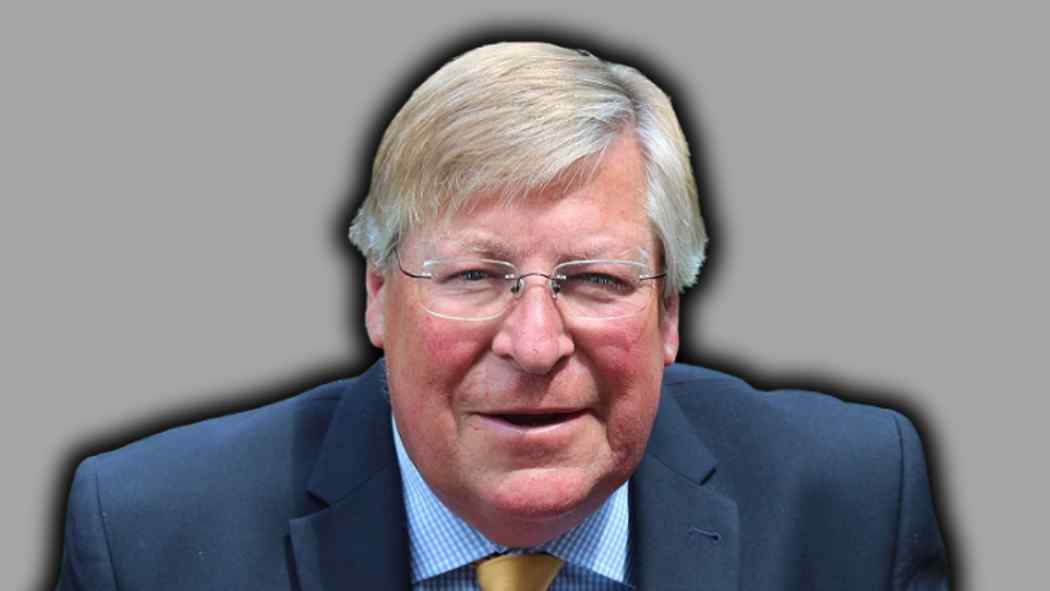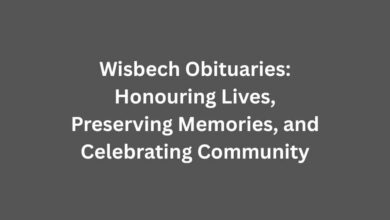Edward Stourton: The Voice of Integrity in British Broadcasting

Edward John Ivo Stourton, known widely as Edward Stourton, stands as one of Britain’s most respected journalists and broadcasters. Born on 24 November 1957 in Lagos, Nigeria, during the final years of British colonial rule, his early life was shaped by a mixture of privilege, tradition and exposure to diverse cultures. His father worked overseas, giving young Edward a worldly perspective from an early age.
Stourton’s upbringing was steeped in values of education, discipline and service. He attended the Catholic preparatory school at Avisford in West Sussex before progressing to Ampleforth College, a Benedictine boarding school renowned for its academic rigour and moral foundation. His years there played a vital role in developing his sense of duty, intellectual curiosity and confidence. By the time he left Ampleforth, Stourton had already emerged as a natural leader, serving as head boy and taking an active interest in debating and public speaking.
Following this, he went on to study English Literature at Trinity College, Cambridge. His academic journey at Cambridge was marked by distinction — he achieved a 2:1 degree and served as President of the Cambridge Union Society, one of the most prestigious debating societies in the world. His time at the Union not only honed his oratory skills but also exposed him to the world of journalism and political discourse. This environment shaped the foundation for his future broadcasting career, where articulate expression, critical thought and public engagement became his hallmarks.
The Beginning of a Distinguished Career
Edward Stourton’s career began in 1979 when he joined Independent Television News (ITN) as a graduate trainee. It was a time when television journalism was entering a transformative phase, and ITN was known for pioneering dynamic reporting styles. Stourton quickly proved himself to be more than just another trainee — his clarity, composure and precision set him apart. He worked on a variety of roles, from producing to editing, demonstrating a wide range of technical and editorial skills.
In 1982, he joined Channel 4 News at its inception. As one of the founding team members, Stourton contributed to establishing Channel 4’s identity as a serious and credible source of national and international news. His early years at Channel 4 News were marked by long hours, tough editorial decisions and a drive to uphold high journalistic standards. This experience gave him a rare insight into the mechanics of broadcast journalism — from shaping a story to presenting it with authority.
A Respected Voice at the BBC
Edward Stourton’s association with the BBC began in 1988 when he was appointed as the Paris Correspondent. Covering major European political developments, he provided insightful analyses from a continent undergoing rapid change, including the fall of communism and the rise of a new European identity. His reporting from France and neighbouring regions reflected both sensitivity and intellect — qualities that soon caught the attention of senior BBC editors.
He later returned to ITN as Diplomatic Editor in 1990, a post that further solidified his credibility as a foreign affairs expert. Yet the BBC remained his professional home at heart, and in 1993 he rejoined the organisation as one of the main presenters of the BBC One O’Clock News. His calm demeanour and trustworthy delivery made him a familiar face in households across Britain.
By 1999, Edward Stourton became one of the principal presenters of BBC Radio 4’s Today programme — arguably one of the most influential current affairs shows in the UK. For a decade, his voice was the sound of the morning for millions of listeners. Unlike many broadcasters who rely on dramatic tone or sensational phrasing, Stourton maintained a style defined by measured thoughtfulness, subtle wit and deep respect for his interviewees. Whether speaking to world leaders, academics or ordinary citizens, he combined professional rigour with human empathy.
Journalism with Depth and Dignity
What makes Edward Stourton’s journalism exceptional is his pursuit of truth with dignity. He never succumbed to the lure of cheap sensationalism that often creeps into modern media. Instead, he upheld a standard of intellectual journalism, one that invites reflection rather than reaction.
His reporting has always carried a sense of moral awareness — a recognition that the journalist’s duty is not only to inform but also to enlighten. Stourton’s interviews, documentaries and analyses often explore themes of faith, ethics, and human rights. As a practising Roman Catholic, he brings to his work a sensitivity towards issues of conscience, religion and cultural identity, without ever preaching or imposing personal beliefs.
This balance between objectivity and moral insight makes him a rare figure in contemporary journalism. He is known for questioning authority with respect, not aggression, and for treating subjects with curiosity rather than judgement. His career exemplifies how integrity and civility can coexist with fearless reporting.
Authorship and Literary Contributions
Beyond broadcasting, Edward Stourton has distinguished himself as an accomplished author. His books reflect the same depth and curiosity found in his journalism, covering topics that range from religion and politics to war and the evolution of media.
His 1998 book Absolute Truth: The Catholic Church Today examined the state of modern Catholicism in a world increasingly dominated by secularism. It was both critical and compassionate, reflecting Stourton’s unique ability to approach sensitive subjects with balance.
In It’s a PC World (2008), he explored the complexities of political correctness in British culture, offering a nuanced critique of how well-intentioned social movements can sometimes hinder open debate. His writing style in this work demonstrated wit, intelligence and courage — qualities that make him a true public intellectual.
Perhaps his most acclaimed historical work is Cruel Crossing: Escaping Hitler Across the Pyrenees (2013). This book blends historical research with human storytelling, recounting the journeys of refugees who risked everything to flee Nazi-occupied Europe. Through meticulous detail and emotional depth, Stourton captures both the heroism and tragedy of those times.
Later, in Auntie’s War: The BBC During the Second World War (2017), he turned his gaze inward, chronicling the history of the BBC during one of its most defining periods. The book revealed his admiration for the institution’s role in shaping public morale, truth and democracy during wartime.
In 2023, Stourton released Confessions, a deeply personal memoir reflecting on his upbringing, privilege, and long career in broadcasting. The memoir stands out for its honesty — he does not shy away from discussing class, faith, and even his own diagnosis of incurable prostate cancer. It is a moving reflection on life, mortality and meaning from a man who has spent his career helping others make sense of the world.
Personal Life and Philosophy
Edward Stourton’s personal life mirrors the same balance of intellect and compassion that defines his work. Married twice, and a father of grown children, he has always kept family life relatively private, focusing public attention instead on his professional contributions.
He has spoken candidly in recent years about living with cancer, approaching it with the same grace and rationality that marked his career. Rather than despair, he has chosen acceptance and openness, using his platform to raise awareness about health and mortality.
Faith remains a cornerstone of his identity. As a Catholic who has spent decades navigating the often-secular environment of journalism, Stourton demonstrates how belief can coexist with inquiry and scepticism. He often reflects on moral complexity rather than preaching certainty — a hallmark of true intellectual honesty.
Influence on Modern Broadcasting
The impact of Edward Stourton on British media cannot be overstated. He represents an era when journalism was guided by curiosity, respect and truth rather than speed, bias or celebrity. Many of today’s broadcasters cite him as a model of professionalism — a reminder that credibility is built not on controversy but on consistency.
His tenure on Radio 4’s Today programme left an indelible mark. The show’s tone — intelligent, probing and calm — owes much to his influence. Even after stepping down in 2009, he continued contributing to other BBC programmes such as The World at One, The World This Weekend, Sunday, and Analysis, each enriched by his meticulous preparation and intellectual depth.
In an age of fast news and fleeting trends, Stourton stands as a beacon of enduring quality. His work encourages future journalists to prioritise substance over style, knowledge over noise, and truth over theatre.
Legacy of a Gentleman Journalist
Edward Stourton’s legacy lies not only in his career achievements but also in the values he represents. He embodies a generation of broadcasters who saw journalism as a vocation rather than a profession — a service to truth and society. His distinctive voice, both literal and moral, continues to resonate with those who value thoughtful communication in public life.
He has shown that a journalist can be both critical and kind, both questioning and respectful. His ability to explore difficult issues with empathy has earned him admiration across political and social divides. Whether reporting from foreign capitals, analysing domestic politics, or reflecting on his own life, Stourton maintains a rare equilibrium between intellect and humanity.
As he continues to face personal health challenges with courage and dignity, his story becomes even more inspiring. It is a reminder that strength lies not in denial of vulnerability, but in facing it with grace.
Conclusion
Edward Stourton remains one of Britain’s most admired voices — a journalist who has earned trust through decades of honesty, diligence and compassion. His journey from the classrooms of Ampleforth to the studios of the BBC reflects the best traditions of public service broadcasting.
In an era where news is often reduced to noise, his calm authority and commitment to truth serve as guiding lights for aspiring journalists and thoughtful audiences alike. Whether through his books, his broadcasts, or his reflections on life and faith, Edward Stourton has given Britain a model of what it means to speak with integrity.



